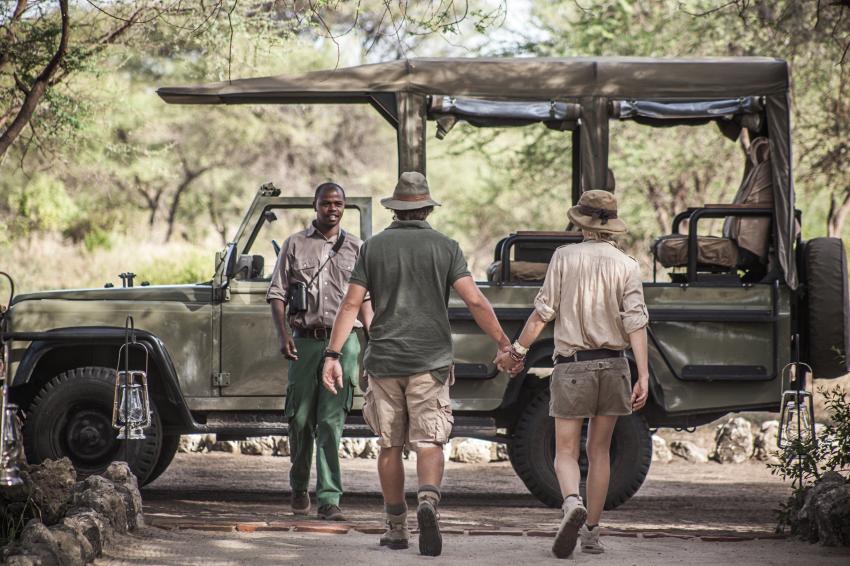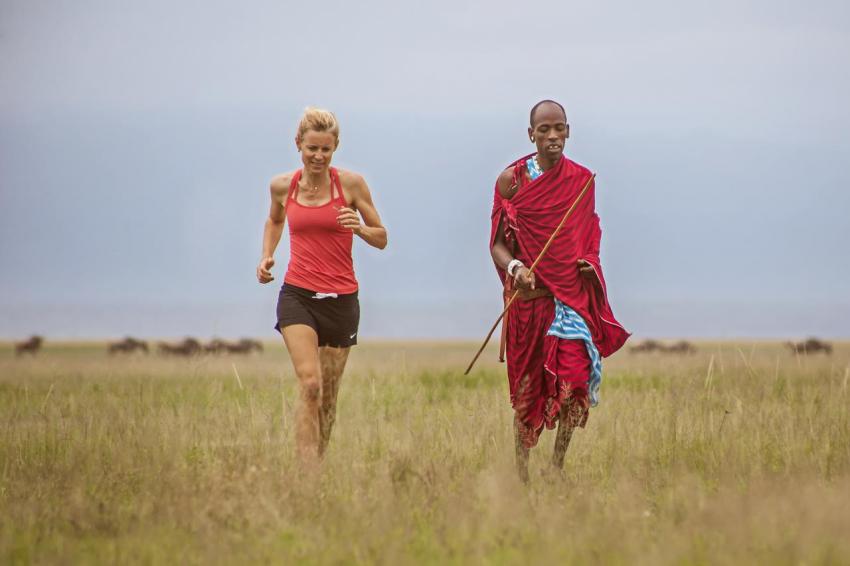Tanzania is one of Africa’s top safari destinations, with iconic wildlife parks such as the Serengeti and Ngorongoro Crater attracting hundreds of thousands of visitors each year. It’s brimming with big game and provides a setting for the Great Wildebeest Migration, which is one of the natural world’s most impressive wildlife spectacles.
Planning a Tanzania safari is all part of the fun, with an inspiring collection of high-end lodges and mobile camps to select from. You also need to decide between travelling during the high (and dry) season or the “wet” when birdlife flocks to the wetlands. But there are also some serious health and safety considerations to keep in mind, as well as a few tricks when it comes to packing.
So to help you plan an incredible adventure that exceeds your expectations, we’ve drawn on our insider knowledge to share some advice and our top planning tips for a Tanzania safari tour.
The best time to go on a Tanzania safari
The dry season from June to October is generally considered the best time to visit Tanzania, with the thinner vegetation and limited water sources making wildlife much easier to spot. The dry days and sunny skies mean you can be out about in the daytime (without having to worry about being rained on) while there will also be fewer mosquitoes in the evenings when compared to the wet season.
June and July are the best times to visit the north of Tanzania if you want to see the wildebeest migration in full swing, although it’s important to keep in mind that the parks can get quite crowded as tourists flock to see this wildlife spectacle. If you time it right on your Serengeti safari, you’ll be able to see the wildebeest crossing the Grumeti River or witness the famous Mara River crossing as they attempt to negotiate the crocodile-infested waters. Keep in mind that lodge and camp rates will be at their highest during this period and you’ll need to book Tanzania safari packages well ahead of time.
But if you’re not worried about getting a little wet and want to see Tanzania’s landscapes at their lushes, then plan your safari during the wet season from November through to May. The grassy plains turn a rich green and the birdlife is exceptional as migratory species arrive from as far away as Europe and Asia. Late-January to February is the best time to see the wildebeest calving in northern Tanzania and watch newborns takes their first steps, with stealthy predators never far away.
If you decide to travel during the wet season, you’ll benefit from reduced accommodation rates and far fewer crowds. However, you should be aware that some roads can become impassable following heavy downfalls and you may need to be flexible with your travel plans.
Budgeting for a Tanzania safari holiday
Tanzania safari packages can vary widely in price, from budget-friendly group trips to luxury safaris staying at high-end lodges. While some safaris will stay in basic camps that require you to drive long distances to get to the wildlife action, others will be based in exclusive lodges where you can wildlife spot direct from your private balcony.
It’s important to be aware when budgeting for a Tanzania safari that while East Africa is generally a relatively inexpensive destination, the remote location of wildlife reserves means that accommodation and transport costs are probably higher than you might expect. But keep in mind that an all-inclusive Tanzania safari package will include not only your accommodation, meals and transport costs but also wildlife reserve fees and the services of highly skilled guides whose expertise can make all the difference to your experience.
When budgeting for your Tanzania safari, also be aware that prices will vary significantly between the low and high seasons. So if you want to save while still having the best safari in Africa, consider booking during the wet season.
Health and safety concerns
One of the biggest concerns for first-time travellers to East Africa is the potential of contracting diseases that have been eradicated back home. But provided you plan ahead and have all the necessary vaccinations before you travel, as well as a malaria prevention strategy, your safari should be trouble free.
It’s essential that you get a checkup from your doctor well before you travel and get their recommendations on any vaccinations you may need. Aside from the usual suspects like diphtheria, tetanus, measles, rubella and polio, the World Health Organization also recommends being vaccinated against hepatitis A, hepatitis B, rabies and typhoid.
Your doctor should have a record of the vaccinations you’ve already had and be able to recommend any boosters you might need. Unless you’re coming from an infected area, a yellow fever vaccination certificate is not officially required to enter Tanzania. But if you have one, it’s a good idea to carry it with you. Also, chat with your doctor about a malaria prevention strategy that suits your individual health and lifestyle while taking into account any potential side effects.
Aside from vaccinations, it’s a good idea to get together a small first-aid/medical kit and organise spare contact lenses. Remember that you’ll probably be travelling in remote areas and while your safari operator will have their own first-aid kit, you’ll need to carry any prescription medication yourself.
It’s also important to take out travel insurance that will cover you in the case of medical emergencies and/or evacuation to the nearest hospital. Lastly, heed all safety warnings from your guides who know the environment like the back of their hands and never step outside of your vehicle when there are wild animals in the surrounds.
What to pack for a Tanzania safari
Packing for a safari is completely different from other holidays, particularly if you’re used to resort-style vacations or cruises. Rather than elegant dinner attire and high heel shoes, you want comfortable, lightweight and quick-dry clothing that’s designed for the great outdoors. Opt for layers that can easily be slipped on and off as temperatures change between the cool of the morning, the heat of the middle of the day and the chill of nights.
Beige, green and brown are preferable as they’ll camouflage you in the savannah while quick-dry fabrics are ideal as they can be hung up overnight, ready to wear the next day. Remember to pack long-sleeve shirts and pants that will protect you against mosquitoes in the evenings, as well as a hat that won’t blow off in the wind when you’re out on game drives.
Other essentials include mosquito repellant and broad-spectrum sunscreen, not to mention a pair of binoculars so you can view wildlife and birds up close. A torch is a good addition to help you get around the campsite at night while a plug converter (Tanzania uses types D and G) is essential if you want to be able to use and charge your electrical items while away.
If you’re planning on taking photographs, consider investing in a high-quality DSLR with zoom lenses that will capture all the action, both up close and from afar. Always carry a spare battery in case yours runs out in the middle of a game drive, as well as a charger.
Rather than a hard suitcase, opt for a soft bag that can be squeezed into small aircraft and remember to heed all luggage weight restrictions.

 1-321-766-6821
1-321-766-6821 



